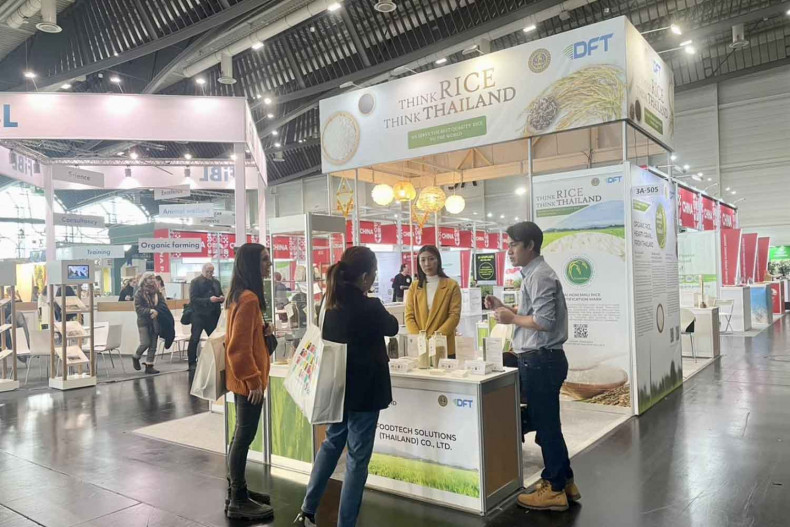Tags
Obstacles remain for small rice traders
NEWSPAPER SECTION: Business, WRITER: Phusadee Arunmas

A veteran rice exporter backs changes in rice trade policy expected later this month, but he cautioned that small businesses still face significant hurdles to break into international markets.
Following the first meeting of the Operational Committee under the 1946 Rice Trading Act (Session 1/2025), Commerce Minister Pichai Naripthaphan said the committee approved revisions to rice trading regulations to facilitate and increase opportunities for farmers and small businesses in rice exports. Another goal was to break up monopolies, said Mr Pichai.
Stock requirements for exporters were adjusted, effective by the end of January, he said.
Farmer groups and cooperatives no longer need to maintain rice stock, while small businesses with registered capital of up to 10 million baht have reduced stock requirements of 100 tonnes, down from 500 tonnes, said Mr Pichai.
Chookiat Ophaswongse, honorary president of the Thai Rice Exporters Association, said exporters support and agree in principle with this policy because it will reduce costs for small and medium-sized enterprises (SMEs).
However, he said several challenges remain in implementing this policy.
Finding export markets and access to working capital are crucial for rice shippers, said Mr Chookiat.
“To make this policy more viable, the government must facilitate access to low-interest funding sources, enabling SMEs to enter the rice trade effectively,” he said.
Under the new regulations, the fee structure for rice export permits is also revised, said Mr Pichai.
Farmer groups and cooperatives are exempt from export permit fees.
For SMEs applying for general export permits, companies with registered capital of up to 10 million baht are charged 10,000 baht, down from 50,000 baht.
Companies with registered capital of between 10-20 million baht are charged fees reduced to 30,000 baht.
Exporters of packaged rice (up to 12 kilogrammes per package) face fees lowered from 20,000 baht to 10,000 baht.
Mr Pichai said these fee reductions require a ministerial regulation, as well as cabinet approval and a legal review by the Council of State. The changes are expected to be finalised by March.
For the next phase, the government wants to enable SMEs to produce and compete in the global market.
The ultimate goal is a fully liberalised rice market, eliminating stock requirements and fees entirely, he said.
Mr Pichai said Prime Minister Paetongtarn Shinawatra will visit China in early February to celebrate the 50th anniversary of diplomatic relations between Thailand and China.
During this trip, the agenda includes discussion of the outstanding delivery of 280,000 tonnes of rice from the 1-million-tonne government-to-government deal made under former premier Yingluck Shinawatra’s administration.
China has said it will expedite efforts to complete the delivery this year.
https://www.bangkokpost.com/business/general/2943250/obstacles-remain-for-small-rice-tradersPublished Date: January 20, 2025






